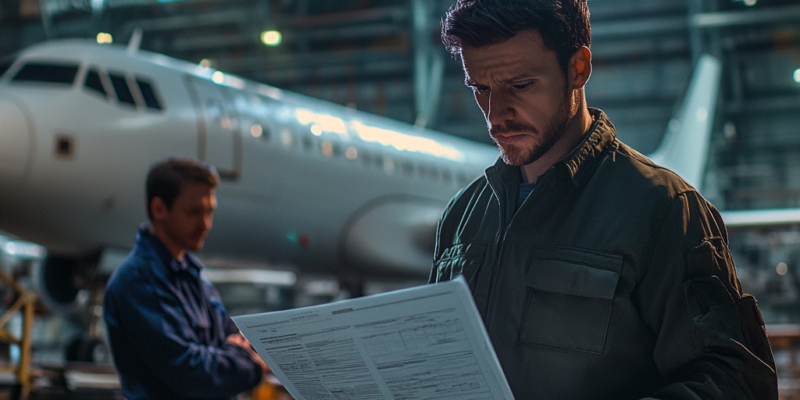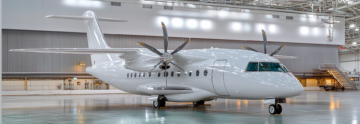The UK aviation industry, once a thriving hub of international connectivity and innovation, has faced significant headwinds in recent years. The introduction of IR35 reforms and the aftermath of Brexit have created a challenging landscape, particularly for the professionals who form the backbone of this sector; pilots and engineers.
As we enter 2025, it is vital to assess the lasting impact of these shifts, their implications for aviation professionals, and how businesses can adapt to chart a smoother course.
Understanding IR35 and Its Role in Aviation
IR35, introduced as part of the UK’s tax reforms, aims to combat “disguised employment” by ensuring contractors who work in similar conditions to full-time employees pay the same tax and National Insurance contributions. While its goals may have been well-intentioned, the implementation has left many aviation professionals grappling with uncertainty.
The aviation industry has traditionally relied heavily on contractors, particularly in roles such as:
- Pilots: Many airlines operate with flexible rosters, hiring pilots on temporary contracts to meet seasonal demand.
- Engineers: Maintenance, repair, and overhaul (MRO) operations often require contractors to address short-term spikes in workload or specific expertise for niche projects.
- Ground Staff and Operations Specialists: These roles are frequently outsourced for flexibility and cost efficiency.
The IR35 reforms effectively shift the tax burden to these contractors and the companies hiring them, increasing costs and administrative complexity. For aviation professionals, the reforms mean reduced take-home pay, diminished job flexibility, and challenges in negotiating contracts. For employers, it has created a dilemma: absorb higher costs or risk losing access to a crucial pool of skilled talent.
Brexit: Adding Complexity to the Flight Path
Brexit has compounded the challenges for the UK aviation sector. By severing its seamless integration with the European Union, the UK has faced:
- Loss of Freedom of Movement: Aviation professionals, particularly pilots and engineers, now encounter additional visa requirements and work restrictions. Many EU nationals working in the UK have returned to their home countries, leaving a skills gap in key roles.
- EASA vs UKCAA: UK-registered aircraft and professionals must comply with separate certification standards, creating additional administrative burdens. This is particularly problematic for engineers whose qualifications may no longer be universally recognised across Europe.
- Reduced Competitiveness: Airlines and MRO providers have found it more challenging to attract business from EU countries, as they no longer enjoy the advantages of being part of the single market.
The combined effect of Brexit and IR35 has been to heighten uncertainty in the aviation sector. Pilots and engineers who once viewed the UK as a land of opportunity now consider opportunities elsewhere, particularly in the EU, Middle East, and Asia, with more favourable conditions
The Current State of UK Aviation
As of 2025, the UK aviation industry is still grappling with the lingering effects of the pandemic, IR35 reforms, and Brexit. While passenger numbers are steadily recovering, the workforce faces structural challenges:
- A Growing Skills Shortage:
The outflow of experienced pilots and engineers to other markets has left UK employers struggling to find qualified replacements. According to industry reports, there is a 20% shortfall in licensed aircraft maintenance engineers (LAMEs) in the UK.
- Contractor Exodus:
IR35 reforms have pushed many contractors out of the UK aviation market. Some have opted for permanent roles in other industries, while others have moved abroad to avoid the tax and regulatory burdens.
- Increased Costs for Employers:
Airlines and MRO providers now face higher costs for hiring contractors due to the additional tax liabilities under IR35. This has led to fewer job opportunities and increased competition for the remaining skilled professionals.
- Operational Delays and Inefficiencies:
With fewer skilled workers available, many companies are struggling to meet demand, leading to longer turnaround times for maintenance and operational inefficiencies.
Adapting to the New Normal
Despite these challenges, there are ways forward for both aviation professionals and businesses:
For Employers:
- Redefining Employment Models: Companies can offer hybrid contracts that balance the flexibility of contracting with the stability of permanent employment, ensuring they remain attractive to top talent.
- Upskilling and Retention: Investing in training programs and retaining existing talent can mitigate the skills gap caused by Brexit and IR35.
- Global Recruitment Strategies: Broadening recruitment efforts to attract professionals from outside the EU, particularly in regions where aviation talent is abundant, can help fill the gaps.
For Aviation professionals:
- Understanding Tax Implications: Contractors should seek professional advice to navigate IR35 regulations and optimise their tax position.
- Upskilling: Expanding certifications and qualifications can open doors to new opportunities, especially in markets unaffected by Brexit and IR35.
- Exploring International Opportunities: Pilots and engineers can consider relocating to regions with favourable tax regimes and high demand for aviation talent, such as the Middle East or Asia.
Looking Ahead
The UK aviation industry is at a crossroads. While Brexit and IR35 have undeniably created turbulence, the resilience of this sector and its professionals should not be underestimated. By adapting to these new realities, both businesses and individuals can find opportunities amidst the challenges.
Aviation is, at its core, a global industry. For the UK to remain competitive, it must work towards harmonising tax policies, investing in workforce development, and rebuilding its reputation as a hub for world-class aviation talent.







